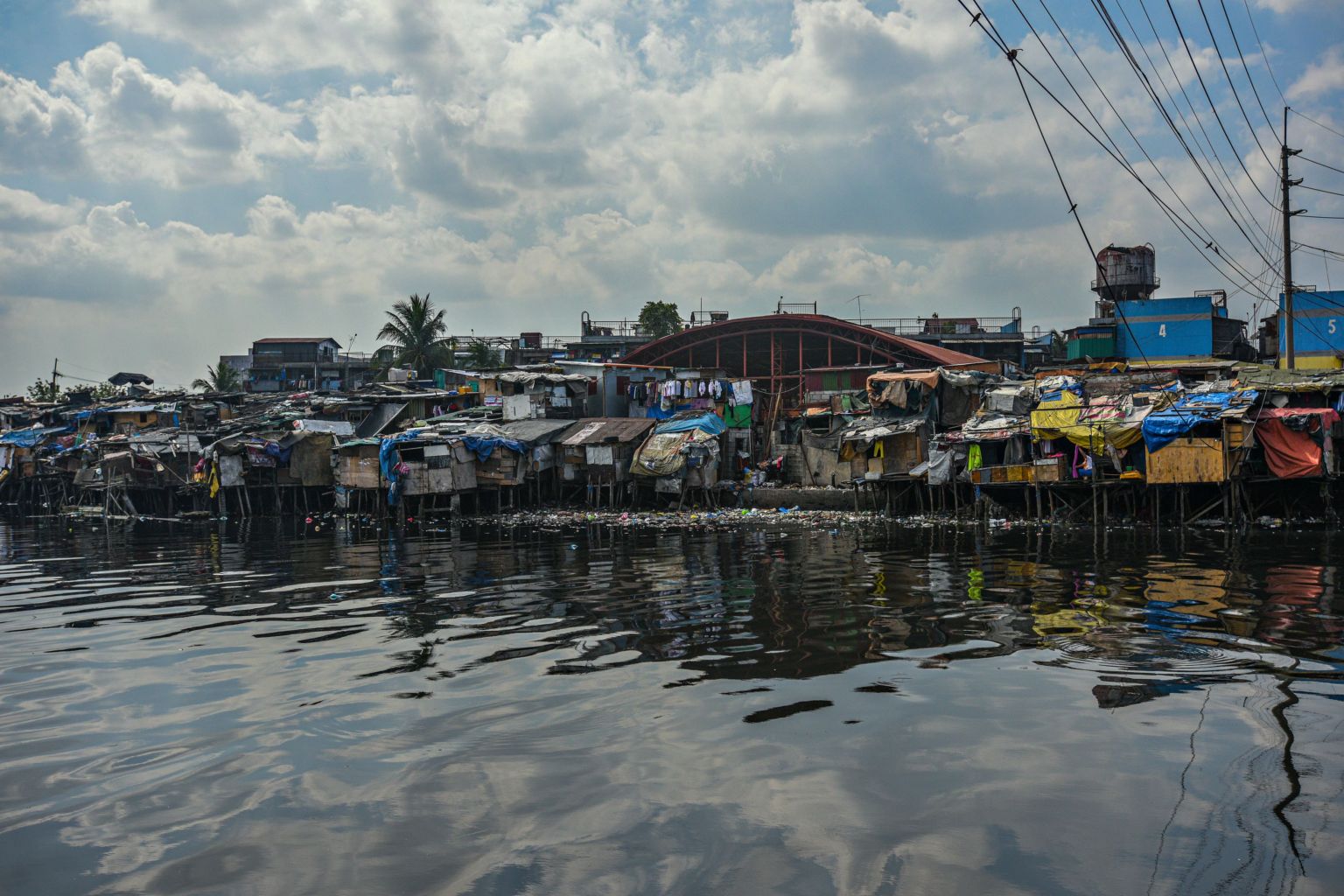Coronavirus: Perfect storm of virus peril in Asia's sprawling slums
Sign up now: Get ST's newsletters delivered to your inbox

A general view of a slum area along the river in Manila on March 18, 2020. East Asia and the Pacific are home to 250 million slum-dwellers, many of them in China, Indonesia and the Philippines
PHOTO: AFP
Follow topic:
TONDO (AFP) - Mary Grace Aves is terrified of the deadly coronavirus pandemic, but the best weapons to protect her family - isolation and sanitation - are unreachable luxuries in the Manila shantytown they call home.
The same particularly dangerous set of threats loom over hundreds of millions packed into Asia's massive slums, where staying clean is nearly impossible and people have to leave their homes daily to survive.
"It may be possible (to isolate) in other areas because they are rich. They have big spaces," said Aves, a mother of four. "Here we are crammed." "If you run into somebody on the way out of the house you will touch," the 23-year-old said from her closet-sized home in Manila's Tondo district.
Asian nations have imposed increasingly heavy measures to fight the contagion, with the Philippines ordering around half of its 110 million people to stay home.
That quarantine includes Manila, but there was no sign of authorities enforcing it in slum areas on Wednesday (March 18). The order was being flouted in many parts of the sprawling metropolis.
Because the virus spreads through droplets that can be picked up with one touch or inhaled from a sick person's sneeze, global health authorities say the best protection is staying home and keeping hands clean.
"But what if you cannot do either of those things?", asked Annie Wilkinson, a fellow at research group Institute of Development Studies, in an opinion piece.
"There is a real risk that the impacts on the urban poor will be considerably higher than elsewhere," she wrote.
East Asia and the Pacific are home to 250 million slum-dwellers, many of them in China, Indonesia and the Philippines, a 2017 World Bank study said.
Homes in these slums are tightly-packed, tiny spaces that are only big enough for sleeping and lack running water.
Cooking, laundry, personal hygiene and leisure are done in common spaces filled with people, which means residents have to be in public in order to survive.
In Aves's settlement, there are no surgical masks, hand sanitizer or sinks, and toilets are buckets emptied directly into the black water of the Estero de Vita river.
The narrow, muddy passages between the homes are only wide enough for one person, so locals touch frequently as they slide past one another.
An infection there would have everything it needs to spread.
More than 218,000 cases of the COVID-19 infection have now been detected globally, with nearly 9,000 deaths.
Asia's poorest have been largely left to protect themselves as the outbreak accelerates.
Neither Indonesia nor India have imposed lockdowns, and have not taken significant steps specifically directed at preventing outbreaks in shantytowns.
In Pakistan, Prime Minister Imran Khan said the government would not impose a large-scale urban lockdown against the virus because it would extract too great an economic toll.
"If we shut down the cities - people are already facing difficult circumstances - we will save them from corona at one end, but they will die from hunger on other side," Khan said.
Tondo residents said they had been out of work since the Philippines' quarantine kicked in but would be forced to go out to find other employment once their money ran out in a matter of days.
Unlike wealthier communities that can restrict access to outsiders with entrance gates or security guards, slum areas are wide open.
"There's a possibility we'll get infected because we can't control who comes here," said 48-year-old Fely Tumbaga, who runs a small store in Tondo.
"We don't know if outsiders have the virus," she added, noting that locals were increasingly wary of anyone they didn't know.
For slum dwellers who develop severe cases, reluctance to seek care due to the cost involved could prove a deadly decision.
The strength of a nation's healthcare system has been a key factor in death rates, but so is the severity of infection when people seek treatment.
Public health expert Gideon Lasco said the ability to pay but also to reach the hospital as lockdowns tighten will be decisive.
"Immediate access to quality care can mean the difference between life and death," he said.

